A Realm of Possibilities: Catching Up with Eun Young and Min Gu

Eun Young and her husband Min Gu were unable to support themselves in North Korea through government-approved means, so they found other ways to survive. She worked in an underground market and he traded goods between North Korea and China. This life was difficult, but they continued on in order to provide their child (they asked us not to disclose their child’s gender) with the best future possible. However, they eventually came to realize that their situation would never improve if they stayed in North Korea and resolved to escape in pursuit of a better life.
Today, Eun Young and Min Gu are safely resettled in South Korea and are making lives for themselves in their new society. Our resettlement coordinator, Anna, recently met up with them to talk about their lives in North Korea, what they're doing now, and what their plans are for the future.

Anna: I saw a North Korean restaurant close by your apartment on the way.
Min Gu: The person who owns the restaurant is also from North Korea and she resettled seven years ago, but the food there is not as good as what you can have in North Korea. I asked them to slice and fry tofu thinner because that’s what it is supposed to look and taste like back home.
Eun Young: Those aren’t authentic. It’s not a matter of the thickness, but rather the quality of the tofu, because in North Korea two to three generations of a family will make tofu traditionally and it’s so flavorful and good. But, I still go to the restaurant instead of going to a bigger and nicer restaurant whenever I miss my hometown. They also have corn-noodle soup and stuffed squid, and every bite makes me feel nice and warm. Have you tried any of these foods?
Anna: My friend from North Korea and I once made rice-filled tofu, but I’ve never had corn-noodle soup. It sounds really good!

Min Gu: (Chuckles) It’s not like what you'd expect. People back in North Korea eat it to fill their stomachs. Why would you go to the North Korean restaurant when there are so many better choices? As I said, we go there because it brings back our memories of home.
Anna: Many North Korean people must live around here.
Min Gu: Yes, I’m guessing about 30% of the residents of this apartment complex are North Korean. Many disabled and elderly people who receive housing through the government live in the apartment complex, too.
Anna: By the way, what happened to your leg?
Min Gu: I got hurt at work. I was hospitalized, but I came home for today because you were coming.
Eun Young: Actually, you don’t go to hospital for a sprained ankle in North Korea. You just rest and apply a steamed towel to the ankle. Hospitals here have better technology and service, so he can be treated with the proper procedures.

Anna: When do you remove the bandage?
Min Gu: I now have to wear a cast. It’s terribly boring to spend all my time at the hospital. I’d rather work.
Eun Young: We enjoy working; it’s so rewarding. We both received our first paycheck in November. We sent $2,000 out of $3,000 to our child in North Korea.
Anna: Who is your child staying with?
Eun Young: With an aunt. We recently had a chance to talk to our child on the phone, I recorded the whole conversation and listen to it every single day.

[Recording of the conversation]
Child (age of 9): Mom?
Eun Young: My darling, I miss you, I really do. Mom and dad just sent your aunt $2,000. It’s 100 $20 bills. Okay? If there’s anything you want to eat or have, don’t hesitate to ask your aunt. Ask your aunt to buy you fruits if you want. Don’t cry, Mom and dad will bring you out next year. Please be a little more patient. Also, drink milk. You promise me to drink milk every day, okay?
Child: Mom, don’t worry. Stay healthy.
Eun Young: I’ll be never relieved until we meet. We’ll bring you out. I’ll hand the phone to your dad.
Min Gu: Stay healthy and eat well. Don’t tell other friends and teachers that you’ve talked to us. Always be careful.
Child: (Sobbing) I want to see you, dad. I miss you.

Anna: S/he seems mature.
Eun Young: S/he used to be like a baby sometimes and was very affectionate, but s/he has changed over past few months. My sister-in-law takes good care of my child, but it’s not the same to live with someone other than your immediate family.
Anna: When people first attempt to escape, you can’t predict how it’ll turn out. Is that why you couldn’t bring your child with you?
Min Gu: Yes, exactly. If two of us get caught crossing the river or in China, we can make excuses since I worked as a trader between the two countries. We would be imprisoned for a shorter period. But if we get caught with our child, there’s no explanation other than defecting from North Korea.

Eun Young: But after we succeeded, I regret bitterly not bringing our child. We want to bring him/her out some time next year when we’re more stable and have enough money to support him/her. I’m glad that it’s possible to hear his/her voice through the phone and to be able to mail each other occasionally. My child recently sent me a picture of him/herself in the clothes that I sent him/her for the holidays. It means a lot to him/her when I pick out a piece of clothing and send it instead of cash.
Anna: S/he looks good in yellow!
Eun Young: His/her favorite color is yellow, but I’m worried that people suspect s/he has relatives in South Korea because s/he owns better belongings than his/her friends. We need to bring him/her out as soon as possible. That’s why we work so hard to save money, there’s no time to waste.

Anna: What was your biggest challenge in South Korea?
Eun Young: I struggled to figure out what kinds of job were out there, what I’m good at, and how to make a wise decision when I’m newly resettled.
Min Gu: Nothing too hard, but I’m busy catching up with South Korea’s advanced technology and assimilating in a new society.

Anna: How often do you think about North Korea? What do you think about?
Eun Young: Yes, every second of my life I think about North Korea, especially the food shortage. I wish they could have enough food so they don’t starve to death. I wish people in North Korea could have this freedom that I have now. I have a better life here, but people in North Korea are dying because of starvation.
Min Gu: Even just before we left North Korea, a young-man who lived next door died of starvation although he served in the military for thirteen years. I saw no hope.

Anna: What was your biggest challenge in North Korea?
Min Gu: We had enough to feed our child, but I was always nervous living in an unstable society with fear of getting caught or being imprisoned for irrational reasons.
Eun Young: Day and night, I was always intimidated by someone knocking on the door. That sound was so terrifying because we bribed the head of a company so that my husband could run his own business instead of taking a labor-intensive job that was required by the government.Anna: What was your happiest memory in North Korea?
Min Gu: (Looking at his wife) Did we ever have a happy moment there? Maybe once a year? When were we happy?
Eun Young: (Smiles)

Anna: How did you get involved with your trade job?
Min Gu: My parents were from Japan and taught me about the concept of capitalism. Although it was a highly risky job, I did it to provide a better quality of life for my family. It was all for my child. I was also discriminated against and couldn’t pursue certain careers because my parents were from Japan.
Anna: It seems like you were more aware of the outside world since you had traveled to China many times?
Min Gu: I traveled to different provinces in North Korea for business, and I realized that some of these people have also awoken to the reality of the outside world. Young North Korean women in the bigger city talk and dress like South Korean women. I even saw a group of young people at a restaurant who tried to talk with a South Korean accent and had fun. Without government regulation, North Korean culture is going to be the same as here in the South. They secretly watch the same types of movies and dramas all the time.
Anna: How were you able to travel to many different provinces?
Min Gu: As long as I pay them enough, they’ll issue a travel permit right away. If you pay them in the morning, you’ll be able to obtain the permit in the afternoon even to go to China. Well, if you have certain amount of accumulated capital and a respectful family background, North Korea is not the worst country to live, but you never know when the government will take all of that away from you. Everyone has the same concern.

Anna: Aren’t you worried about the competitive nature of life in South Korea?
Eun Young: No, I’m not worried at all. The more we work, the more we earn. It’s very satisfying and no one will accuse or arrest me. I like that!
Anna: What is it like living in freedom?
Min Gu: It’s so relaxing and fascinating to live like an actual human being.
Eun Young: The effort and time I put into my work pays off. I really appreciate the sense of accomplishment. In North Korea, although you’re healthy and your physical condition is allowing you to work, you never get paid for your labor anywhere. We jokingly said to each other that at least one person per household should go to South Korea because they’re better off. It’s a shame.

Anna: What is something that you started to do in South Korea that you never did before?
Min Gu: Nothing yet.
Eun Young: I thought about it, but I haven’t been able to challenge myself to learn a new thing just yet. I wanted to learn how to use computers and take classes to be a nurse assistant. My husband wanted to get a heavy equipment driving license, but we both agree that it’s more important to save money first to bring our child out. We’ll achieve those goals little by little. I know if I try to achieve too much too fast, I could lose it all, so I’m not in a hurry.

Anna: What advice would you give to someone who just arrived in South Korea?
Min Gu: When you come to South Korea, live your life to the fullest. As long as you keep trying, anything is possible. Some people might have more resources to start with, but it’s important to appreciate what you have, not complain about what you don’t have.
Eun Young: Sometimes I feel shameful to look at myself sweeping the street all day and think ‘Why did I risk my life to escape to do this?’ and I’m so sad that I wasted half of my life in North Korea. The last 40 years of my life seem like a blank sheet of paper. If I was born in South Korea, I would have been able to receive a proper education and achieve more, however, it’s even more depressing when I think of people who are still in North Korea who never had a chance to live in freedom like an actual human being. I’m going to put all of these negative thoughts away, and work hard and do my best to provide a stable and healthy life for my family.
You can help other North Korean refugees escape China and resettle successfully by donating to our work. Donate here.
A North Korean Refugee’s Daring Escape By Boat | Gyuri Kang’s Story
Escaping from inside North Korea remains almost impossible today. Borders remain sealed by the legacy of pandemic-era restrictions, while surveillance in China continues to intensify. But in 2023, a group of North Koreans crossed into South Korean waters on a small fishing boat—a rare and extraordinary way to reach freedom. Abroad the vessel was 22-year-old Gyuri Kang with her mother and aunt.
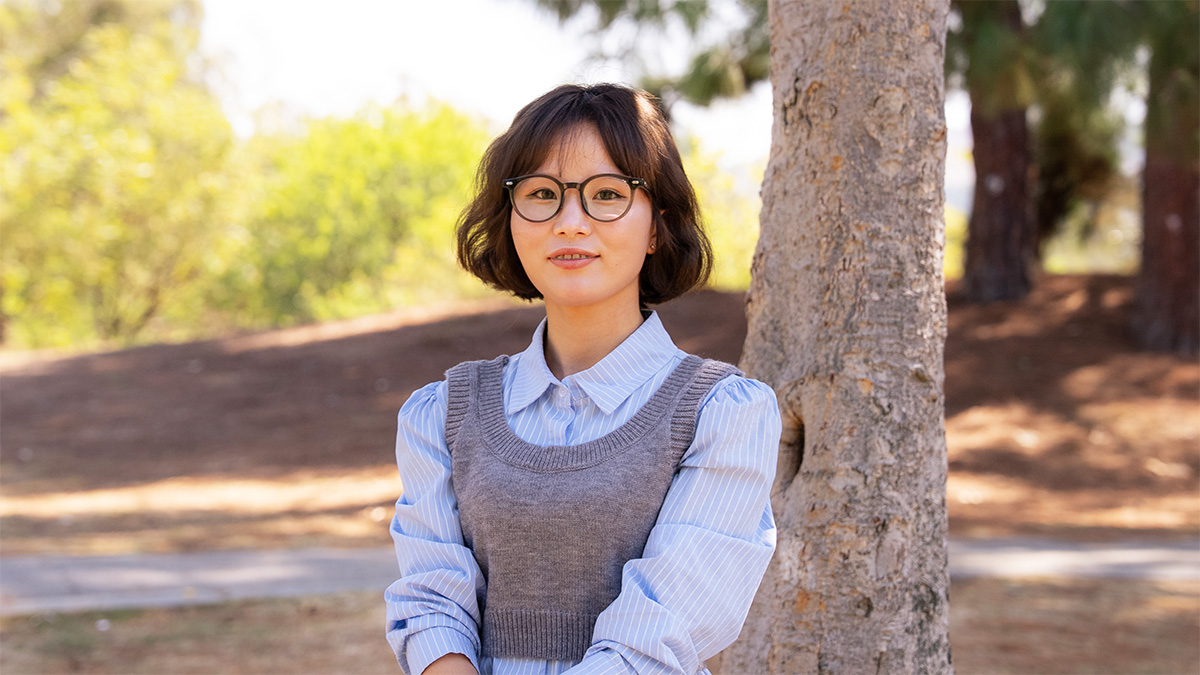
You were never supposed to know my name, see my face, or hear my story. Because I was one of 26 million lives hidden inside North Korea.
I was born in the North Korean capital, Pyongyang. The first time the government decided my future without my consent, I was only a child. My family was exiled to a rural fishing village because of my grandmother’s religion.
In the system we were living in, not even your beliefs or thoughts are truly your own.
On my way to school, youth league officers would inspect my clothes and belongings, punishing me for even a hairpin or a skirt that was a few centimeters too short. At school, we were taught that “we live in the most dignified nation in the world,” but outside those walls, people were collapsing from hunger in the streets.
Careless words overheard by a neighbor could turn into a knock at the door in the middle of the night. The radio played government broadcasts all day long, and searching other frequencies was a risk no one dared to take. This is how the North Korean government maintains control over people. By convincing you that survival depends on submission.

I returned to Pyongyang as an adult. I majored in table tennis at the Pyongyang University of Physical Education and imagined myself making a new life, built on talent and hard work.
But reality was nothing like what I had dreamed. I came to understand a deep, painful truth: In the end, everything was determined by how well you obeyed, not how hard you worked.
Frustration and emptiness built up until I finally decided to leave Pyongyang.
I wanted to help support my mother and aunt, so I moved to the coast to try and build a life of my own. My mother used all of her hard-earned life savings to buy me a small wooden fishing boat so I could start a business harvesting clams.
That boat was more than a way to make a living. It was a daily reminder of her sacrifice, and the depth of their love and trust in me. If the money I earned with my own hands could put even one less wrinkle on her forehead, that was enough for me.
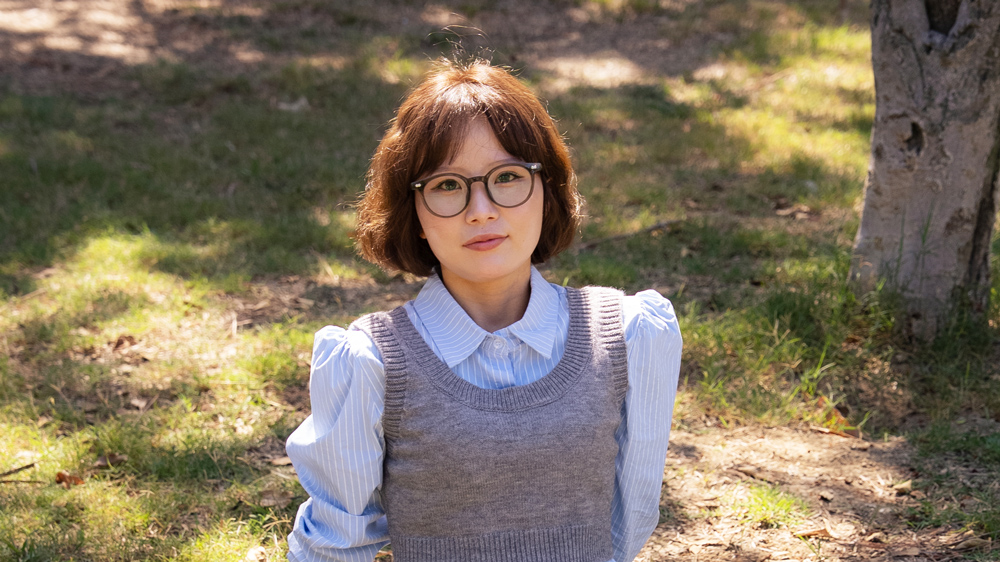
As a boatowner, I woke up early in the mornings to prepare supplies, get the crew together, and encourage them. I inspected the condition of the boat and hired people to help fix the engine and other faulty parts. Although I couldn’t go out to sea because I’m a woman, I was responsible for ensuring the ship operated smoothly.
But the harder I worked, the more government officials came to me—demanding baskets of clams and money. They justified their demands by saying: “The Party orders it,” threatening to punish anyone who refused. Every night I agonized over how to protect my people and keep my business going, and how I should respond. In those moments, I would remember the love and devotion my mother and aunt had poured into me and it gave me strength to persevere.
To escape my reality, at night I secretly watched South Korean TV shows on a television that was smuggled in from China.
My world turned upside down. With my friends who were also watching South Korean media, we would cautiously express our dissatisfaction together while also copying the hairstyles and outfits we saw in dramas. Sometimes, we would even try to mimic South Korean words or accents when talking or texting together.
But under Kim Jong Un, punishments became much more severe. Two people I knew were executed for watching and sharing foreign media. Our lives became harder, control over young people became more intense, and our resentment began to grow.
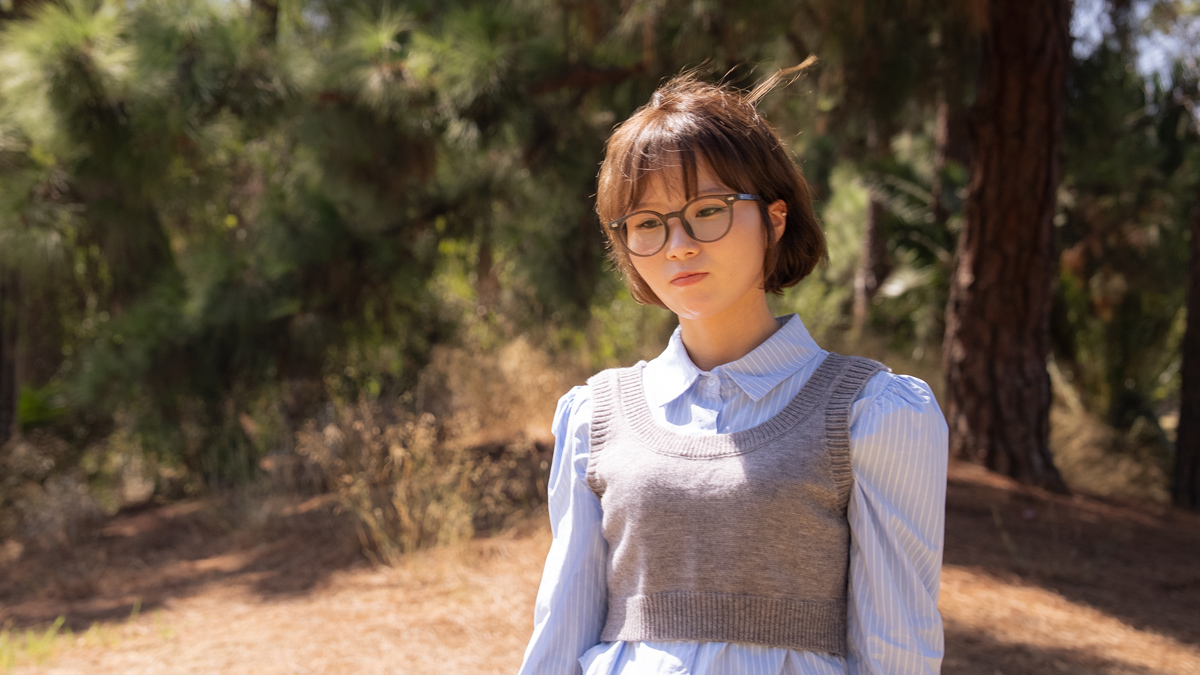
But no matter how much they tried to repress us, frustrated young people like me continued watching forbidden content as a way to forget reality. Foreign media has quietly found its way into North Korea for decades. As I grew up, it began spreading more than ever before, through USBs passed between friends or broadcasts picked up on illegal devices.
Many defectors, like me, can remember the exact episode of a TV show, a specific South Korean song, or even a traffic report, that planted the first seeds of doubt.
Of course, dramas and movies don’t tell the whole story, but they show a life that contradicts everything we were taught. And it makes you wonder: if life is so different out there, why does it have to be this way here?
I realized it doesn’t just show people that different lives exist. It gives them the belief that their life could be different. And that belief gives people the courage to choose a different future.
The thing about information is once you learn something, you cannot unlearn it. I remember watching people on my screen speak freely, laugh openly, and pursue their dreams—things that were unimaginable in North Korea. For the first time, I wondered if everything we were taught might be wrong. That doubt led to questions, and my curiosity became too strong to ignore. Now that I had seen the truth, I could never go back to the person I was before.
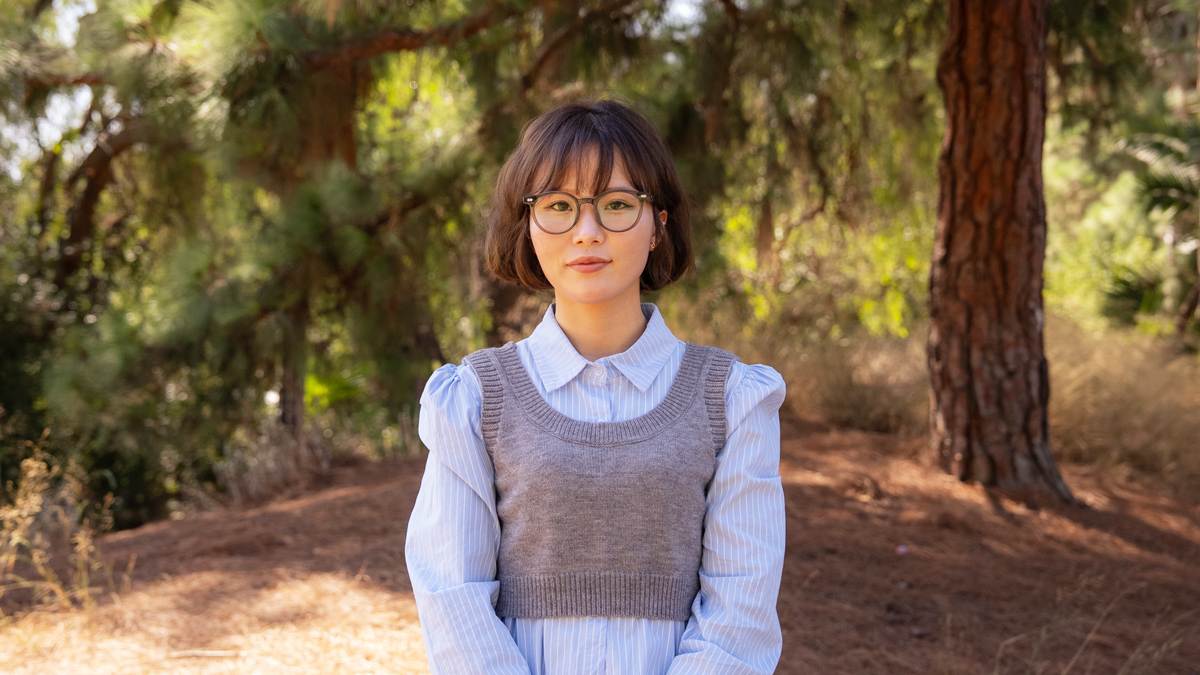
Escaping North Korea cannot be explained by the simple word “leaving.” This was especially true for me because I escaped together with my mom and my aunt. They had placed their trust in me when they gave me money for that boat. And now I was placing my trust in that boat to carry us across the sea to freedom.
I planned our escape in complete secrecy.
I bought a smuggled GPS device from China, carefully traced our route, observed the currents and tides, learned the patrol schedules of the guard boats, and figured out the blind spots of the coastal guard posts. I meticulously checked the condition of the boat and quietly prepared all the food and supplies we would need. I trained my body for the wind and the waves, and my mind for the terror of being caught.
Some nights I woke up in a panic. Other times my confidence crumbled and I thought, maybe I should give up and just accept the life I have. But in those moments, I imagined what waited at the end of the journey.
I wasn’t leaving just to stay alive. I was leaving so that I could live like a human being.
On the night we left, we climbed into my boat and pushed off into the dark water. I gripped the rudder and let the current carry us south, carefully navigating around the guard posts and patrol boats who were on the water looking for people like us.
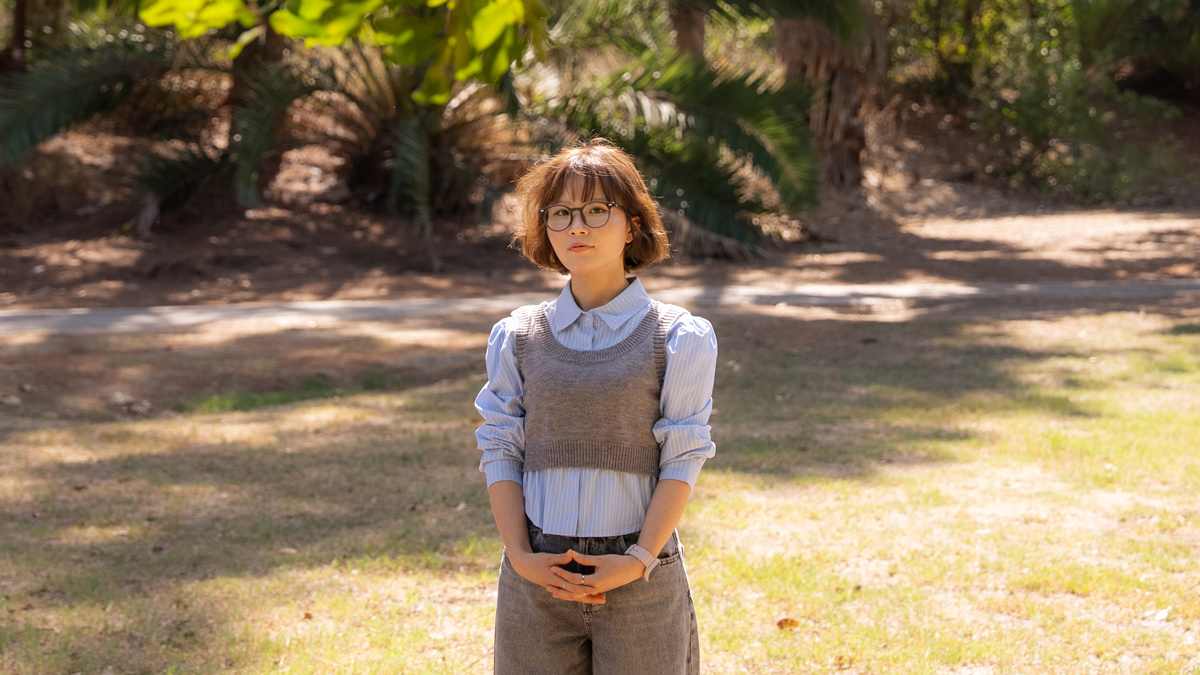
I knew what would happen if we were caught. Arrest. Endless investigations. Humiliation. Public trials. Political prison camp. And the possibility that I might lose the people I loved most in the world.
My mother and aunt were trembling with fear. I had to hide my own fear to tell them what I could only hope. We will survive. We spent the night being tossed back and forth on the East Sea. Black waves lifted our boat like a toy before smashing it down again. Every crash sent water over the sides and threatened to swallow us up.
Suddenly, a patrol ship appeared. Its lights stabbed the water, blinding us, and started coming closer and closer. It was coming for us. My chest pounded so hard I felt it might burst. I thought of the sleeping pills we had brought.
We had agreed that if capture became inevitable, we would rather take our own lives. It was a fate we preferred to execution or prison camps. As the coast guard closed in, I wondered, is it time for the pills?
But I refused to give in. We were so close. I steered away from the searchlights, surrendered the boat to the churning water, and pushed on forward.
Suddenly, the patrol vessel stopped and turned back around. They could no longer chase us. We had reached the maritime border. The sea calmed, as if it was welcoming us to freedom. And as the sun rose, we saw the outline of land.
A South Korean fisherman, hearing radio reports that North Korean patrols were in pursuit, realized we were the boat being chased. He steered his boat toward us and said, "Welcome. You are safe now."
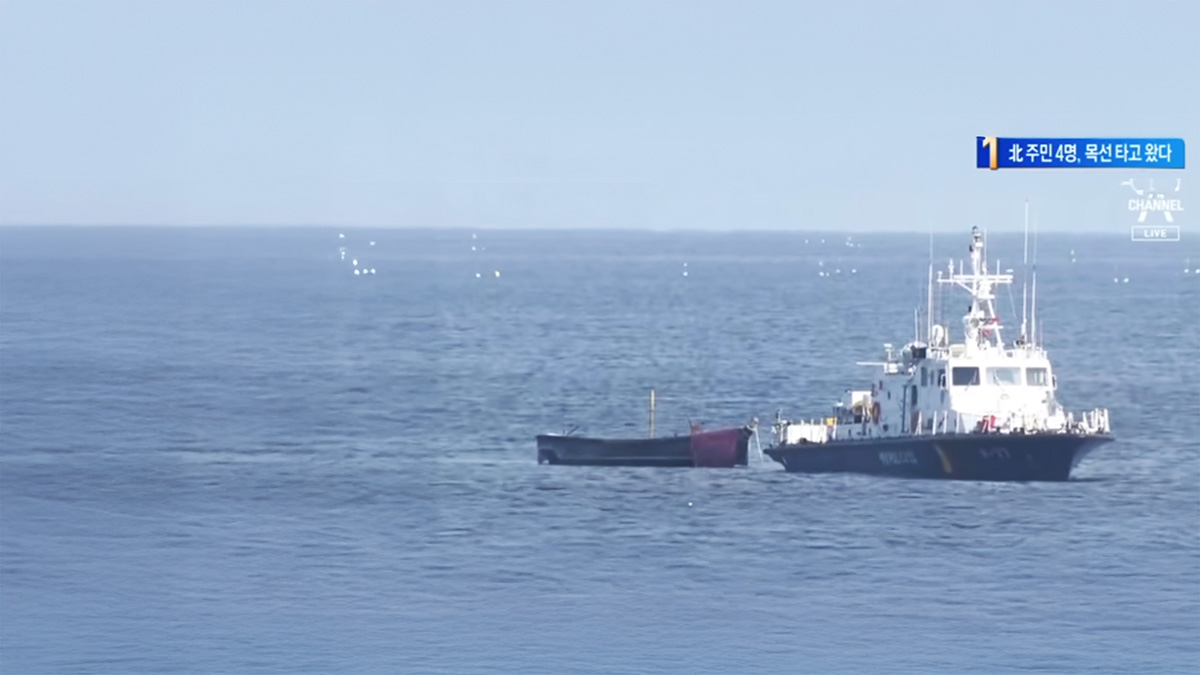
It’s been almost two years since we arrived in South Korea.
I still remember moving into our apartment and using a showerhead for the first time, experiencing hot water flowing straight from the tap. I couldn’t believe it. That day, my mother, my aunt and I took turns showering, laughing, and saying to each other, “So this is what a human life feels like.”
For the first time in my life, I could choose my studies, my job, my clothes, my hobbies—even the way I spoke—for myself. It felt like an entirely new world. We were being reborn, leaving behind a past of silence and control for a life with dignity and a future we could choose ourselves.
My mother began studying for a professional certification. And my aunt enrolled in social welfare classes to help others. I studied hard and was recently accepted into Ewha University. I have also been active in North Korean human rights activism and I even started a YouTube channel to show the world what it looks like to start a new life in South Korea.
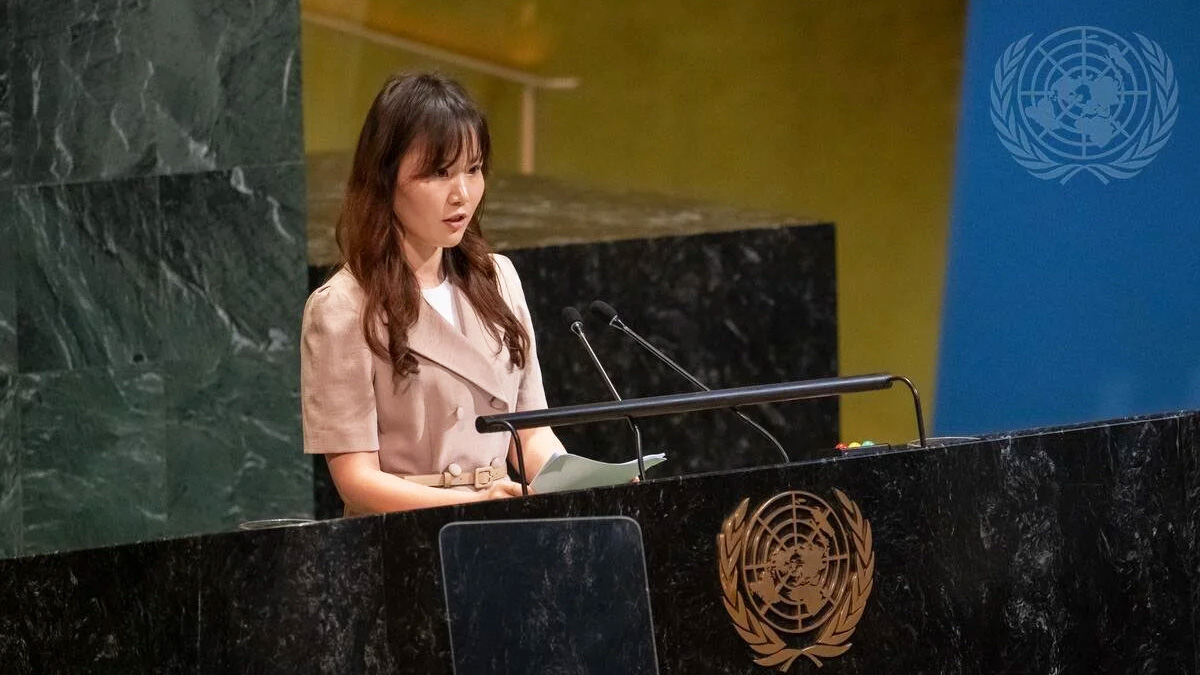
Hope is dangerous for the North Korean government. Millions of people live with anger and sadness, but even more live in resignation. Most do not realize their rights are being violated—they don’t know what “rights” are. I once believed it was normal for the state to control every part of our lives. I thought every country lived this way.
But the moment you realize life could be different, hope begins to take root. And once hope exists, change is no longer unimaginable.
My dream is that someday North Korea will be a place where young people choose their own paths, where no one is punished for their words, and where every person lives as the true owner of their life. While so much of North Korea’s reality is dark, change is already happening. And what sparks that change is information. A single truth from the outside world, a glimpse of what life could be, can plant a seed of doubt, or ignite a spark of hope.
That’s why I speak out. If I don’t tell my story, who will tell it for me? If I stay silent, will the death of my friends, and the suffering and starvation my family endured be forgotten?
Right now, in North Korea, there is someone just like me—sitting in a dark room, secretly watching a South Korean broadcast, quietly wondering: Could I also live like that?
I want my story to prove that this hope can become a reality. I want to stand in the middle of that change. Not just as someone who escaped to enjoy freedom, but as someone determined to one day share that freedom with all North Korean people.
Freedom is not given, but it is something we can achieve. With your support, we can write a future where all North Korean people are free.
Foreign media gave Gyuri a glimpse of the outside world—and the courage to seek freedom.
Increasing North Korean people’s access to outside information is one of the most effective levers for change in the country. And that is exactly what we’re doing at Liberty in North Korea
In partnership with North Korean defectors and engineers, LiNK develops tailor-made technology, tools, and content that help people inside the country access more information more safely. These glimpses into the wider world build people’s resilience to the regime’s propaganda, and emboldens them to imagine a different future for themselves and their country.
Help fuel work that’s directly supporting North Koreans driving change on the inside.




